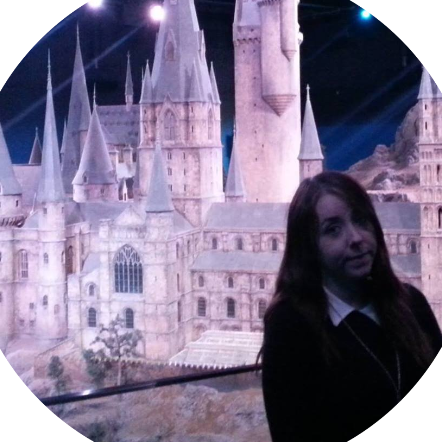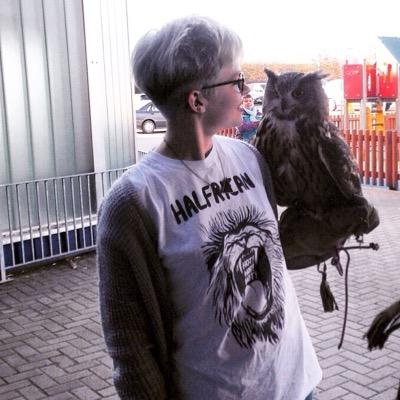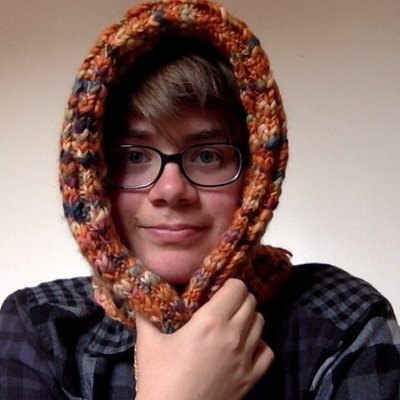The six members of the shadow judging panel were:

Heather McDaid (Chair)
Following the completion of a Masters in Publishing at the University of Stirling, Heather is now a Publishing Assistant at Bright Red Publishing in Edinburgh. She is the Social Media Officer for SYP Scotland. @heathermmcd
What I found most interesting about judging these books is that, while I try to read widely, I came in with a lot of preconceived notions that I hadn't realised. I thought travel writing would be fact-heavy and was surprised when it was like lovely prose. I thought the political book would lean to one side like referendum coverage often had, and was surprised to find it balanced. Most surprisingly, on reading the initial list I assumed what would be my favourite, having been a fan of dystopia, but it wasn't. Basically: I'm going to try stop that. I could miss out on great books because of it.
Chairing the panel was particularly interesting as I wanted to make sure everyone got their say on every book before we delved into proper conversation, and even there I found my opinions changing. When you live in your own bubble with a book, hearing something you hadn't previously considered can really alter your opinion on its merits or pitfalls. When finding a winner, the discussion was great: not just personal preference but looking at the qualities and ambition of each book, and who actively excites you for their future as an author. Some books were weird and wonderful, and I've definitely found a new author I'll be following in the future, which is always a bonus!

Charlotte Brady
Charlotte is a final year Undergraduate student at the University of Edinburgh studying Philosophy. On completion of her degree Charlotte is keen to pursue a career in publishing and is the Student Liaison Officer for SYP Scotland. @Charlottewbrady
I was really excited when I learned that my category was the First Book Award. As an aspiring editor and somewhat more shyly aspiring writer, I was looking forward to thinking critically about the debuts which made it to the short list for a literary award.
I wasn’t disappointed and I found inspiration a number of the entries, particularly Helen McLory’s On the Edges of Vision, a unique collection of short stories which reminded me that it’s important not to shy away from writing which makes you feel uncomfortable.
One of the big differences for me, between reading for pleasure and for the panel, was that I stuck with one or two books on the list when I wasn’t really feeling it. With personal reading, I’ve always sided with Doris Lessing, as she states in the Golden Notebook:
“There is only one way to read… picking up books that attract you, reading only those, dropping them when they bore you, skipping the parts that drag-and never, never reading anything because you feel you ought.”
It was strange to carry on with a book I didn’t connect with immediately, but in the case of 60 Degrees North, I’m very glad that I did. The book developed into an enjoyable story and the tool of the 60 degree parallel made for an interesting travelogue, which satisfyingly came full circle, enhanced greatly by the accompanying intense, emotional journey.
I had a wonderful time reading, thinking about and discussing books in this context. I think the question I ultimately considered with the First Book Award was, who am I most excited to hear more from? Helen McLory edged it for me, in this respect.

Justine Bottles
A Masters student studying Publishing Studies at Edinburgh Napier University and member of SYP Scotland, Justine took part in this scheme to learn about the many different aspects of the Scottish publishing industry. @JustineBottles
This month, I had the opportunity to participate in the Saltire Society’s shadow panel for the First Book of the Year award. As an American student with Edinburgh Napier’s MSc Publishing program, this was an amazing opportunity to get an in-depth look at Scotland’s vibrant publishing industry. I was pleasantly surprised by the work we read; as a dedicated fiction reader, I tend to stay within my comfort zone. From Audrey Henderson’s Airstream to Peter Geoghegan’s The People’s Referendum, the First Book of the Year award shortlist consisted of a diverse group of extremely talented authors.
While the group had a tough time coming to a decision, we determined that Helen McClory’s On the Edges of Vision was the winner. Her strange, dark, often jarring collection of short stories is an incredible debut. I was pleased to hear that the Saltire Society agreed; McClory took home the First Book of the Year award on November 26th.
Overall, this was an amazing experience; one I wouldn’t hesitate to participate in again. Although I did not get the opportunity to attend the awards themselves, I found myself checking out the winning and shortlisted works in other categories, eagerly searching for new Scottish books to read. In addition, I discovered Helen McClory; a fabulous new author I plan to follow.

Julia Crawford
Julia has just begun a Masters in Publishing at Edinburgh Napier University. She became a shadow judging panel member to get a sense of what being on a judging panel for a book award was like. @margaretable
Not since I wrote a book report at school have I read anything with a view to judgement and analysis, (apart from philosophy texts for my undergraduate degree), so I was really excited to have the opportunity to develop my critical eye by joining the shadow panel for the Saltire Society First Book of the Year Award.
I didn’t know any other way of approaching the daunting task than by diving in head first and just reading away as I normally would. I began with The People’s Referendum, which was a bit of a shock, to be honest – it hadn’t even occurred to me that there might be non-fiction books in the running! Anyway, I powered on through and came to Lie of the Land next. A novel. At this point I checked to see what else I should be expecting and, right enough, there was a fair variation among the titles: from the aforementioned to short stories, poetry, a journey of self-discovery and one other novel. This made the task of judging them one against another much more daunting. To combat this, I decided to read each book as I usually would and judge them simply, as an everyman reader, on how much I actually enjoyed them.
Discussing them with the rest of the shadow panel was fascinating and helped me to voice opinions about the books that I previously hadn’t been sure how to express. For me there were two standout texts and one author whom I’ll be watching closely for their next move. But to reveal which they are? Now, that would be telling.

Jo O’Brien
As a student of Publishing at the University of Stirling, Jo felt the experience of taking part on the Saltire Society’s shadow judging panel would offer invaluable experience and insight into the contemporary publishing industry. @Jo_O_Brien
When I received the books for the shadow panel judgement for category of ‘first book’, I strived to read them with the same outlook I would have if a friend had lent me them. I laid aside the teachings and practices that were instilled in me during my English literature degree because I felt that wouldn’t be the basis in which the reading public at large would be assessing them.
The process of reading the books was very enjoyable, because they were all from very different and varying genres. From a political journalism piece about the Scottish referendum, to a poetry book, I read a few books that wouldn’t have been my first personal choice if I was browsing in a bookshop. It was interesting to read about a wide scope of topics and I was surprised that I enjoyed each of the books, despite some of the genres not being one that I would usually pursue.
I found all the books were written to a very high standard and contained a general Scottish reference or theme. That said, that was the only common thread among the books, so it wasn’t possible to really compare them extensively.
The book that really stood out for me was, The Leipzig Affair by Fiona Rintoul. I thought the narrative form was unique and the story was really engaging. She told the story through different protagonists and different time frames, but she did this very skilfully, and each character had their own believable personality. I would definitely read whatever books this author writes in the future because I enjoyed this one so much.
It was difficult to pick a favourite, because as I mentioned before, the writing standard really was exceptionally high. The experience of getting to read all the books, and then discuss them in length with other avid readers, was wonderful. I am a true bookworm so I was in my element. I definitely would love to partake in this process again next year.

Nathaniel Kunitskaya
A Masters student studying for Publishing Studies at Edinburgh Napier Unviersity, Nathaniel was interested in working within a team of judges to critically discuss the books shortlisted for this year’s Saltire Society Literary Awards. @nakutski
Before joining Saltire’s First Book shadow judging panel I’ve never had the opportunity to judge a work - except for when studying in an academic environment. When reading for study I tend to put aside personal qualms with the content, author and style of the work and focus on getting it read as objectively as is possible. Learning how to put on an impartial suit and skim reading glasses helps a great deal, especially if the work in question does not engage with you on a personal level. When analysing I adapt an “impartial reader” stance - looking at what works, what doesn’t, whom is the book aimed at, how does it fit into context, what purpose do the ideas and opinions expressed serve, are they effective? Thankfully with this panel’s shortlist I didn’t have to abstract myself to great lengths, I found each work engaging and of interest. In the end our panel decided that the key factor for these works was a sense of continuity and of future prospects for the writer.
I must (guiltily) admit I do have a favourite - Helen McClory’s On the Edges of Vision - short stories clicked with me from the start. Her work is a find I’ll treasure since I’m not sure I’d have come across it on my own (eventually, perhaps) if I were not a member of the panel. Actually, the thought that this was Helen’s first book terrified me, it meant that a long wait was ahead to discover more of her writing! In a burst of enthusiastic desperation I contacted Helen on social media (we had a lovely tweet betwixt ourselves) and I was assured that more was soon to come and given several links to a variety of work published online before her collection was printed.